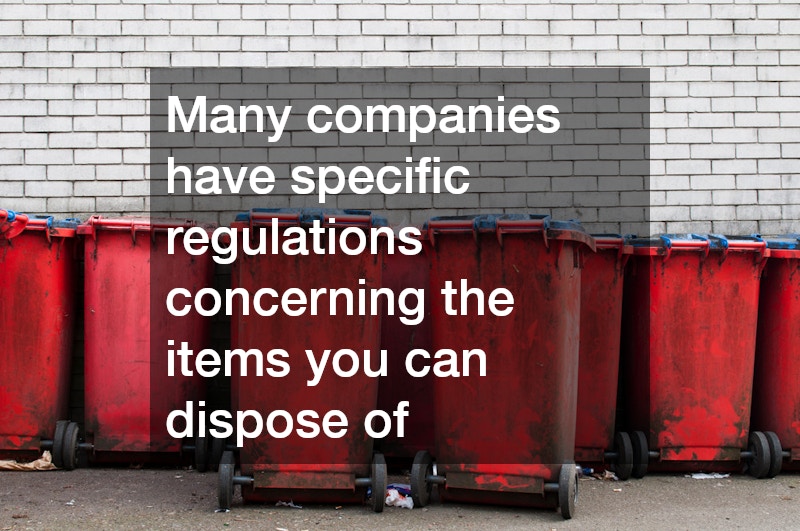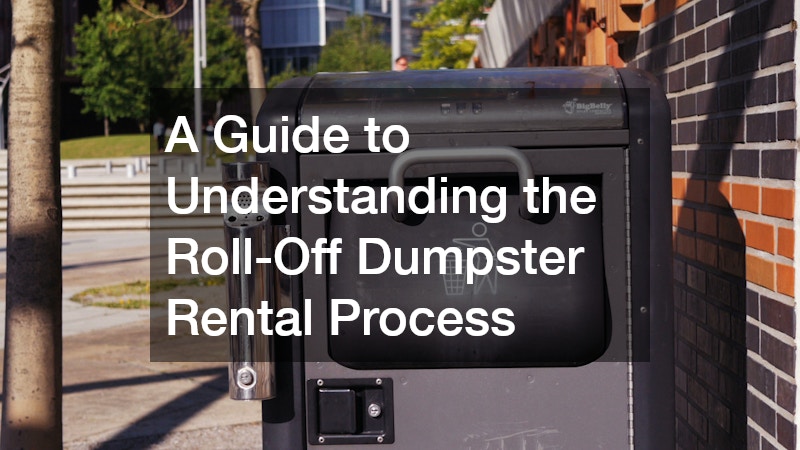It can be helpful to have a comprehensive understanding of the roll-off dumpster rental process, including key steps, considerations, and common questions that arise during the rental experience.
Renting a roll-off dumpster can significantly streamline waste management for various projects. Whether you are tackling a home renovation, a major clean-up, or a commercial construction effort, understanding the associated processes is essential.
This guide aims to simplify the complexities surrounding roll-off dumpster rentals.
By addressing common concerns and outlining critical steps, you will be better prepared to handle your waste disposal needs effectively. Knowledge will empower you to make informed decisions that not only meet your project’s demands but also adhere to local regulations and practices.
Defining Roll-Off Dumpsters and Their Purpose
A roll-off dumpster is a large bin that is delivered to your location for the disposal of waste. These dumpsters are typically used for heavy debris, such as construction materials, household junk, and yard waste. They are designed for easy transport and are often found at construction sites or major home renovation projects.
You might need one for various projects such as home renovations, yard clean-ups, or commercial construction. The convenience of having a roll-off dumpster allows for efficient waste disposal, ensuring that the debris does not pile up and hinder your progress. Knowing when to rent one can greatly impact the flow of your project.
Common scenarios for renting a roll-off dumpster include spring cleaning, moving, or undertaking extensive remodeling projects. Understanding the specific types of projects that warrant a dumpster can help you plan accordingly and avoid delays or complications during the waste removal process.
Choosing the Right Size Dumpster
Selecting the right size dumpster is crucial to accommodate the amount of waste you have. Sizes typically range from 10 to 40 yards, depending on the scale of your project. Smaller dumpsters are ideal for residential clean-outs, while larger containers are better suited for extensive construction jobs or major renovations.
Understanding your project needs will help you estimate the volume of waste you will generate. It’s important to consider factors such as the type of materials you are disposing of and any local regulations concerning waste load limits. This assessment can prevent overage charges or running out of space halfway through your project.
Many dumpster rental companies offer size guides or consultations to help you determine the most appropriate dumpster size. Don’t hesitate to ask questions or seek professional advice to make sure the dumpster you choose is adequate for your requirements.
Understanding the Rental Process
The rental process generally includes selecting a company, determining your size needs, scheduling delivery, filling the dumpster, and arranging for pickup. It begins with researching local dumpster rental providers and comparing their services and costs. Customer reviews and ratings can be insightful in making your selection.
After choosing a company, you will need to provide details about your project, including the type of waste, the expected amount, and the rental duration. This information helps the rental company recommend the appropriate dumpster size. Typically, delivery can be arranged for a specific date that aligns with your project’s timeline.
Once the dumpster is delivered, you will fill it according to your needs, ensuring compliance with weight limits and material restrictions. After you complete filling, simply contact the company to arrange a pickup. This straightforward process reduces the stress associated with waste management, allowing you to focus on your project.
Avoiding Prohibited Items
Many companies have specific regulations concerning the items you can dispose of in their dumpsters. Common prohibitions often include hazardous materials, chemicals, and electronic waste. This is crucial to ensure compliance with local laws and to prevent environmental damage.
Understanding what can and cannot go into your dumpster can save you from incurring additional fees or facing legal issues. Always check with your rental provider for a comprehensive list of restrictions so that you can plan your disposal accordingly. Familiarizing yourself with these regulations is an essential aspect of the renting process.
In addition to standard restrictions, some materials may require special handling and disposal procedures. Items like tires, batteries, and certain construction debris often have specific disposal regulations, and being aware of these can enhance environmental sustainability efforts.
Understanding the roll-off dumpster rental process can save you time and money and make your project more manageable. By addressing common questions, you can make informed choices that best suit your needs. Whether for a home renovation, construction project, or cleanout, a roll-off dumpster can ease the burden of waste disposal.
By knowing when to rent a dumpster, selecting the right size, understanding costs, familiarizing yourself with the rental procedure, and adhering to item restrictions, you will enhance your project experience significantly. This knowledge equips you to handle all waste disposal needs effectively.
A well-managed waste removal strategy will not only facilitate a smoother project process but also contribute positively to local waste management efforts. Engaging in responsible waste disposal practices is a significant step towards sustainability and community health.




